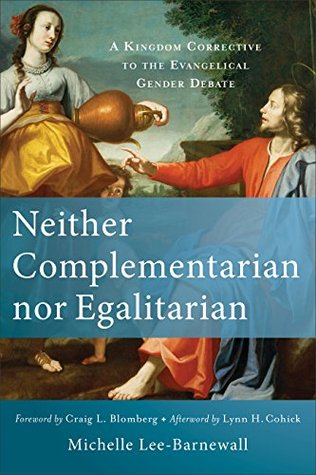More on this book
Community
Kindle Notes & Highlights
Read between
June 4 - July 10, 2019
When one can sufficiently bracket modern causes and read the text carefully in its original contexts, one sees that unity and inclusion prove more central than equality or freedom. A concern for love and humility, rather than one of authority and privilege, pervades the scriptural texts and contexts.
If it should turn out that there are any roles reserved for men, this is in no way to give them unique privileges but rather to require distinctive responsibilities. What a contrast with the standard complementarian preoccupation with headship as leadership!
The objection is not with authority itself. Rather the problem lies in the prominence of authority as a critical defining point for the complementarian position as it places an undue focus on an aspect that has been critiqued and redefined in the New Testament. We must ask whether kingdom values have been properly integrated into the complementarian position and whether more transcendent values can be taken more fully into account. As a result, we will also demonstrate that “servant leadership” as it is commonly understood by complementarians does not sufficiently capture the New Testament
...more
Rather than stability obtained by each part living according to its worldly status, unity is achieved by the self-sacrificial behavior of the entire body, and especially the high-status members. This then leads to a critical component of leadership for Paul. As the apostles follow the model of Christ, their lowering, self-sacrifice, suffering, and other-oriented concern and behavior set the example for others for the unity of the community. Their example is particularly powerful because, as leaders, they would be least expected to do so,
Recognizing the significance of unity, including unity as the responsibility of the husband, may provide a helpful perspective for our contemporary questions. If God commissioned Adam to promote the unity of the marriage, then it is difficult to imagine that “authority” would be a main characteristic of his responsibility since power relationships tend to separate rather than create intimacy.


